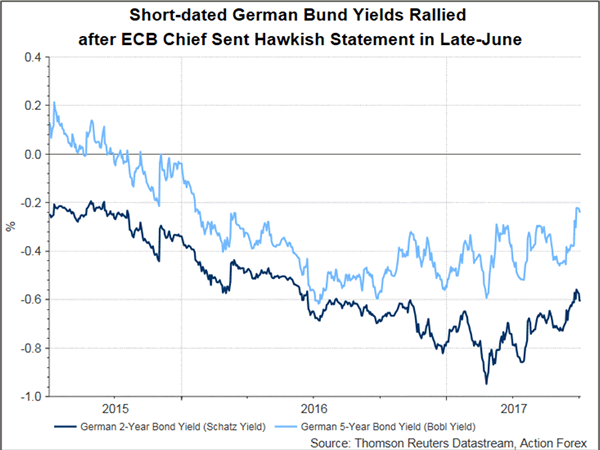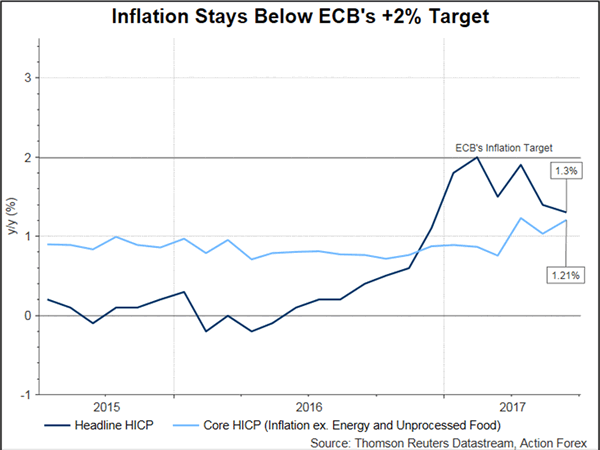The minutes for the June ECB meeting turned out more hawkish than expected, sending EURUSD to a 3-day high of 1.1397 and Europe’s Stoxx 600 stock index to a 11-week low 378.45. The minutes unveiled that policymakers had discussed removing the guidance on the bond asset purchase program (QE), if necessary. Policymakers just shrugged off recent weakness in headline inflation as core inflation continued to climb higher. This came in line with President Mario Draghi’s comments last week that "deflationary forces have been replaced by reflationary ones", pointing to a "strengthening and broadening recovery" in the Eurozone. German 2-year yield breached the March high after the comments and has rallied to a level not seen since January 2016 since then.

The minutes contained several flavors that were surprising to the market. It suggested that, as the tail risks to the recovery outlook have been vanishing, policymakers had considered dropping the "easing bias" in the forward guidance. The refrained from doing so as the region’s economic recovery has not yet achieved higher inflation. The minutes also revealed, while the Council reiterated the promise to in the "size and/or duration" of the QE program, it believed that, "as the economic expansion proceeded and if confidence in the inflation outlook improved further, the case for retaining this bias could be reviewed".
Meanwhile, policymakers stressed that "continued caution in communication" is critical. It is particularly important to avoid sending signals that "could trigger a premature tightening of financial conditions, which in turn could put the progress made towards a sustained convergence towards the Governing Council’s inflation aim at risk, thereby prolonging the need for extraordinarily accommodative monetary policy".
Recall that the ECB staff upgraded it GDP forecasts but downgraded the inflation outlook. The staff projected that GDP would expand +1.9% this year, up +0.1 percentage point +1.8% projected in March, before easing to +1.8% and then to +1.7% in 2018 and 2019, respectively. Note that growth forecasts for 2018 and 2019 were also revised higher +0.1 percentage point from previously. On inflation, the staff revised lower the forecasts to +1.5% for 2017, +1.3% for 2018 and +1.6% for 2019. The corresponding estimates in March were +1.7%, +1.6% and +1.7%. The Council members noted that they found it "puzzling" as the core inflation was revised lower despite stronger economic growth and falling unemployment rate.

